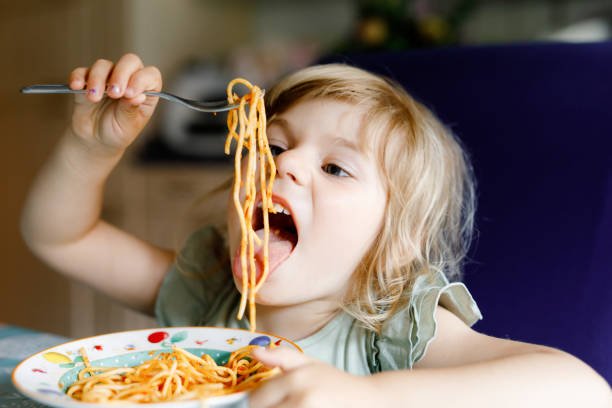Proper nutrition is critical for the toddler’s development and growth; hence you need to emphasize a balanced diet. While children may be choosey and selective, your role as the guardian is to ensure they take all the essential meals rich in the needed nutrients. A balanced diet for children should consist of fluids, fats, carbs, proteins, vitamins, minerals, fiber, etc. providing all these can be difficult; however, with the proper guidance, every meal you give to the child should have all these elements.
Globally, the population of children suffering from malnutrition is high since parents are unaware of all the essentials to include in their meals. Instead of second-guessing, here are some foods and nutrients you should give them to meet their balanced diet needs.
- Soy Proteins
You can include different sources of proteins in children’s meals; however, you need to focus on proving the richest proteins that will contribute to the high protein levels. Therefore, the protein food you choose for their meals matters. Children may have difficulty eating protein meat; hence a lot of focus should be on plant proteins. That is why you are advised to provide soy protein.
Soy protein is ideal for children since it enables you to increase protein consumption without spending more on buying protein products. Soy protein is affordable and sustainable, and you can get different US soy products to feed the child. If they are lactose intolerant, you can buy soy milk for them. When preparing their meals, you should use soy oil to boost their health by preventing heart complications, increased body cholesterol, and high blood pressure.
To ensure they grow healthy, you should consider soy proteins over other plant and animal proteins. Soy can also support their growth development, strengthening bones, cognitive functionality, and skin health. Daily soy consumption will help you meet their dietary needs by increasing the concentration of minerals such as Vitamin K, iron, and other elements such as isoflavones.
2. Vegetables and Fruits
Vitamins are essential for children since they are vulnerable to illnesses and diseases due to low immunity. You should provide them with more minerals and vitamins to increase their body immunity and chances to fight different illnesses. The minerals and vitamins are also critical for boosting the functionality of the digestive system. The vegetables provided should be rich in iron, potassium, and calcium, ideal for bone health and muscle development. The vegetables should include kale, lettuce, collards, broccoli, carrots and tomatoes.
They contain a high fiber concentration which boosts digestion and prevents constipation, one of the challenges currently affecting most children due to limited protein consumption since their foods hardly contain more fiber. Children need more minerals and vitamins than any other age; hence the selected fruits and vegetables must contain all the desired nutrients. Some of the most common fruits for children include kiwi, avocado, pineapples, oranges etc. Also, give them other unique fruits, such as beetroots which can help them support nervous system development and blood formation.
3. Water and Fluids
Water is essential for everyone, including children; hence, you should ensure they have sufficient water. Therefore, you need to balance their fluid consumption by providing more fluids. Be cautious about the type of fluids you provide since some can be harmful and increase chemical concentration in the child’s body.
The most suitable fluid to give the children is milk; ensure you provide them with some dairy or plant-based milk. You can give them juices, but not all; the best juices for children should be organic, i.e., blended juices from fruits. Do not buy processed and manufactured juices; instead, blend the juices from some fruits such as avocados, oranges, melons, and other fruits.
You can also add other supplements, such as natural honey, which is good for their health. Kids should drink at least three cups of water daily to have enough fluids in their bodies. Ensure they take water after food, especially if they eat solid foods.
4. Carbohydrates
There is no balanced diet without sufficient carbohydrates available for the children. Some carbohydrate sources suitable for children include cereals; consider cereal options available for the children.
Other carbohydrate sources include plant sources such as maize, oatmeal, and other plant products. The plant sources are suitable because they provide additional fiber needed for body functionality. You can also make them porridge from wheat flour to help them obtain more carbs and fiber. Plant-based carbs also have suitable sugar levels to prevent conditions such as high blood pressure caused by sugar conditions. Another suitable meal to provide the needed carbohydrate is bread, especially brown bread, which has a high fiber concentration.
Use grain flour, rice, noodles, and other carb-rich foods for their meals and other carb-rich foods. Whenever you give them these carbs, add some vegetables and proteins to ensure they meet the balanced diet requirements. For example, you can mist the rice and some soybean or noodles with some eggs to balance their nutritional needs.
5. Healthy Fats
Low-cholesterol fats are necessary to help the child grow healthy while maintaining an ideal weight. The best fats should be polyunsaturated fats such as omega 3 6 fat, perfect for boosting the child’s cognitive functionality and performance. Providing them with foods rich in these fats is necessary for their daily consumption and healthy growth. First, you should ensure that the oil you use to prepare meals is rich in Omega 3 and 6.
The main sources of these fats include plant and animal-based oil such as soy oil. Besides the already extracted oils, you can give them nuts and seeds rich in sustainable oils. Make nuts a crucial part of their diets, especially after they are done with their meals. Give them groundnuts, cashew, and other soft nuts that cannot harm them while they eat. Also, give them some sunflower products.
Conclusion
When focusing on a balanced diet for children, ensure you include carbs, proteins, vitamins, fruits, and healthy fats in their meals. Different foods will provide all these nutrients; however, the emphasis should be on organic and sustainable sources. You should also provide them with sufficient fluids such as milk, juices and water.





